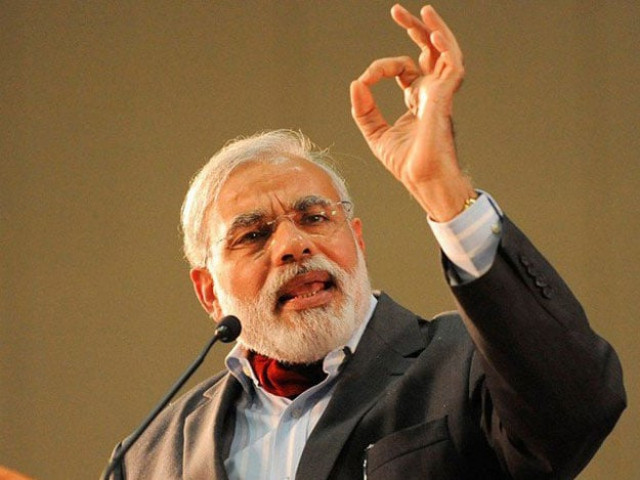India's Modi slams opposition over parliament disruption
Parliament managed to pass just one bill since current session began on February 23 due to rowdy protests in house

Indian PM Narendra Modi. PHOTO: AFP
Parliament has managed to pass just one bill since the current session began on February 23 due to rowdy protests in the house over the controversial arrest of a student leader last month.
That has prevented the government from passing long-delayed bills, including a proposed bankruptcy law and a national goods and services tax (GST) that would replace a myriad of local levies seen as deterring investment.
Innovative diplomacy: Modi’s rule-breaking stopover raises hopes
"I seek support from parliamentarians to pass important bills," Modi said in parliament, accusing protesting MPs of "making the country suffer".
"These bills are for people, for the country."
Modi's government enjoys a majority in the lower house of parliament but needs opposition support to push through laws in the upper house, where it doesn't have the numbers.
His right-wing nationalist Bharatiya Janata Party (BJP) swept to power in 2014 promising to revive the economy and create much-needed jobs, but has been unable to enact many of its promised reforms.
Modi urges Pakistan to take 'immediate action' after base attack
Although India is the world's fastest-growing major economy, experts say gross domestic product is still not increasing at a fast enough pace to provide employment for a burgeoning young population.
Last month saw violent protests in one of the country's most prosperous states by members of the Jat caste, traditional farmers who say they can no longer make a living from the land.
They were demanding improved access to government jobs, still seen by many in India as the surest route to financial security despite efforts to create employment by attracting private investment.
Modi placed the blame for that squarely on the opposition Congress party, which he said had "sown the seeds of poverty" during its time in power.
India's parliament is notoriously rowdy, and Modi's BJP employed similar tactics to disrupt the former Congress-led government.
Last year more than 20,000 Indians, including prominent business leaders, signed an online petition urging lawmakers to end weeks of rowdy protests that had paralysed parliament.
Just 24 bills have been passed since Modi took over in May 2014, according to PRS Legislative Research, a New Delhi-based think-tank. Another 30 are stuck at the voting stage.



















COMMENTS
Comments are moderated and generally will be posted if they are on-topic and not abusive.
For more information, please see our Comments FAQ